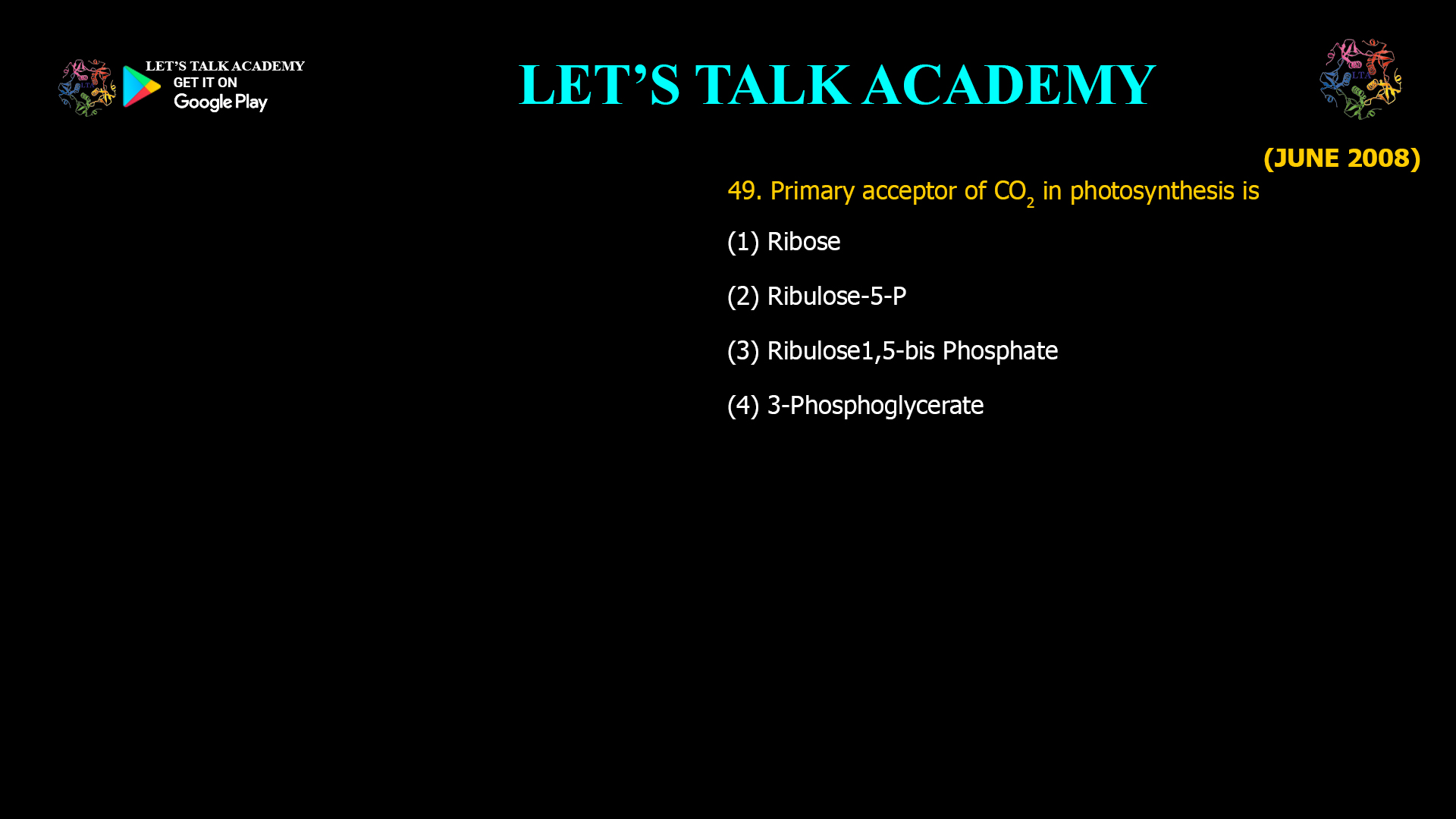49. Primary acceptor of CO2 in photosynthesis is
(1) Ribose (2) Ribulose-5-P
(3) Ribulose1,5-bis Phosphate (4) 3-Phosphoglycerate
The correct answer is (3): Ribulose-1,5-bisphosphate.
In C3 photosynthesis (Calvin cycle), the primary CO₂ acceptor is ribulose-1,5-bisphosphate (RuBP), a 5-carbon sugar that reacts with CO₂ in a process catalyzed by Rubisco. This forms two molecules of 3-phosphoglycerate (3-PGA) as the first stable product.
CO₂ Fixation: Primary Acceptor in Photosynthesis
Introduction
Key phrase: primary CO₂ acceptor photosynthesis ribulose-1,5-bisphosphate RuBP Calvin cycle C3 plants
Photosynthetic carbon fixation starts when atmospheric CO₂ is captured by a specific organic molecule. In C3 plants, this critical molecule is ribulose-1,5-bisphosphate (RuBP), setting the Calvin cycle in motion to generate sugars for plant metabolism.
Explanation of Each Option
-
(1) Ribose
-
Incorrect. Ribose is not involved as the primary CO₂ acceptor in photosynthesis. It is a 5-carbon sugar present in RNA.
-
-
(2) Ribulose-5-P
-
Incorrect. Ribulose-5-phosphate is an intermediate in the pentose phosphate pathway and Calvin cycle, but it is not the molecule that binds CO₂ for fixation.
-
-
(3) Ribulose-1,5-bis Phosphate
-
Correct. Ribulose-1,5-bisphosphate (RuBP) is the actual molecule that accepts CO₂, forming 3-phosphoglycerate via Rubisco catalysis.
-
-
(4) 3-Phosphoglycerate
-
Incorrect. 3-phosphoglycerate (3-PGA) is the first stable product made after CO₂ reacts with RuBP, not the acceptor itself.
-
Key Facts: CO₂ Acceptor and Calvin Cycle
-
RuBP (ribulose-1,5-bisphosphate) combines with CO₂ for carbon fixation in C3 plants.
-
Reaction is catalyzed by the enzyme Rubisco, yielding two 3-PGA molecules.
-
C4 and CAM plants use phosphoenolpyruvate (PEP) as their initial CO₂ acceptor in specific steps.



